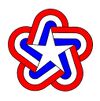Engineering:Freedom 39
 | |
| Development | |
|---|---|
| Designer | Ron Holland and Gary Hoyt |
| Location | United States |
| Year | 1983 |
| Builder(s) | Freedom Yachts |
| Role | Cruiser |
| Boat | |
| Boat weight | 18,500 lb (8,391 kg) |
| Draft | 5.50 ft (1.68 m) |
| Hull | |
| Type | Monohull |
| Construction | Fiberglass |
| LOA | 39.00 ft (11.89 m) |
| LWL | 31.00 ft (9.45 m) |
| Beam | 12.83 ft (3.91 m) |
| Engine type | Perkins Engines 4-108 50 hp (37 kW) diesel engine |
| Hull appendages | |
| Keel/board type | fin keel |
| Ballast | 5,300 lb (2,404 kg) |
| Rudder(s) | skeg-mounted rudder |
| Rig | |
| Rig type | Cat-rigged ketch |
| P (mainsail luff) | 44.50 ft (13.56 m) |
| E (mainsail foot) | 17.50 ft (5.33 m) |
| Sails | |
| Sailplan | Cat-rigged ketch |
| Mainsail area | 389.38 sq ft (36.175 m2) |
| Other sails | Mizzen: 232.44 sq ft (21.594 m2) |
| Total sail area | 621.82 sq ft (57.769 m2) |
The Freedom 39, also called the Freedom 39 Express, is an American sailboat that was designed by Ron Holland and Gary Hoyt as a cruiser and first built in 1983.[1][2][3]
The Freedom 39 was introduced at the same time as the related Freedom 39 PH design, a boat with a similar hull, but a schooner rig and a pilothouse.[1][4][5]
Production
The boat was built by Tillotson Pearson in the United States for Freedom Yachts, starting in 1983.[1][6]
Design
The Freedom 39 is a recreational keelboat, built predominantly of fiberglass, with wooden trim. It is a cat-rigged ketch, with carbon-fiber conventional booms and two free-standing carbon-fiber masts. It has an aft cockpit and features a raked stem, a slightly reverse transom, a skeg-mounted rudder controlled by a wheel and a fixed fin keel. The design displaces 18,500 lb (8,391 kg) and carries 5,300 lb (2,404 kg) of lead ballast.[1]
The boat has a draft of 5.50 ft (1.68 m) with the standard keel fitted.[1]
The boat is fitted with a British Perkins Engines 4-108 50 hp (37 kW) for docking and maneuvering. The fuel tank holds 80 U.S. gallons (300 L; 67 imp gal) and the fresh water tank has a capacity of 130 U.S. gallons (490 L; 110 imp gal).[1]
The design has sleeping accommodations for six people. It has a private, aft, double cabin, under the cockpit on the starboard side, two pilot berths in the main cabin and a double berth in the bow cabin. The galley is U-shaped and located on the port side, at the foot of the companionway steps. It includes a three-burner stove and double sinks. The head is located just aft of the bow cabin on the starboard side.[1]
See also
Related development
Similar sailboats
- Baltic 40
- Cal 39
- Cal 39 Mark II
- Cal 39 (Hunt/O'Day)
- Corbin 39
- Islander 40
- Nautical 39
- Nordic 40
References
- ↑ 1.0 1.1 1.2 1.3 1.4 1.5 1.6 McArthur, Bruce (2020). "Freedom 39 sailboat". sailboatdata.com. Archived from the original on 23 May 2019. https://web.archive.org/web/20190523191909/https://sailboatdata.com/sailboat/freedom-39.
- ↑ McArthur, Bruce (2020). "Ron Holland". sailboatdata.com. Archived from the original on 23 May 2019. https://web.archive.org/web/20190523191825/https://sailboatdata.com/designer/holland-ron.
- ↑ McArthur, Bruce (2020). "Gary Hoyt". sailboatdata.com. Archived from the original on 6 March 2019. https://web.archive.org/web/20190306044451/https://sailboatdata.com/designer/hoyt-gary.
- ↑ McArthur, Bruce (2020). "Freedom 39 PH sailboat". sailboatdata.com. Archived from the original on 23 May 2019. https://web.archive.org/web/20190523191900/https://sailboatdata.com/sailboat/freedom-39-pilot-house.
- ↑ Sherwood, Richard M.: A Field Guide to Sailboats of North America, Second Edition, pages 332-333. Houghton Mifflin Company, 1994. ISBN 0-395-65239-1
- ↑ McArthur, Bruce (2020). "Freedom Yachts". sailboatdata.com. Archived from the original on 18 October 2018. https://web.archive.org/web/20181018225052/https://sailboatdata.com/builder/freedom-yachts.
 |
